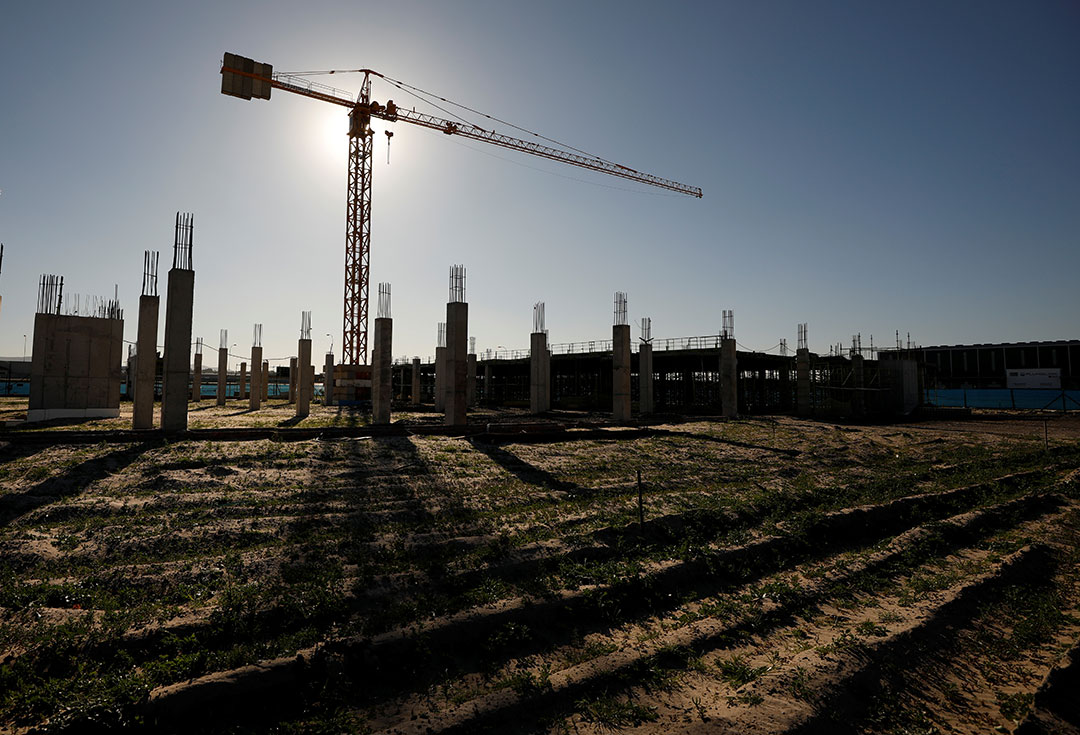ADF STAFF
Progress on many of China’s One Belt, One Road (OBOR) projects in Africa has stalled due to economic distress caused by the spread of COVID-19.
Chinese officials recently acknowledged that about one-fifth of all OBOR projects were “seriously affected” by restricted travel and trade. Some projects also have been stalled by quarantines and other safety measures related to COVID-19. OBOR is a Chinese government infrastructure initiative to expand trade by building roads, ports, dams and railroads in Africa.
On the continent, OBOR projects in Algeria, Egypt, Nigeria, Zambia and Zimbabwe have been suspended as the countries scramble to stem the spread of the pandemic. The Nigerian project, a 150-kilometer railway linking Lagos to Ibadan, has faced repeated delays since 2012. The $1.5 billion project was supposed to be completed in May.
“Most of the Chinese workers who went on their New Year holiday have not yet returned due to the coronavirus, and this has delayed the work,” Rotimi Amaechi, Nigeria’s transport minister, told Agence France-Presse.
In May, Nigerian lawmakers voted to review all Chinese loans since 2000 over fears of unfavorable financing terms. Legislator Ben Igbakpa told the country’s House of Representatives that there is worldwide concern over a lack of transparency and corruption related to Chinese loans to African countries.
“At the last count, Nigeria has obtained 17 Chinese loans to fund different categories of capital projects, and Nigeria would still be servicing the Chinese loans until around 2038, the maturity date for the last loans obtained in 2018,” Igbakpa said, according to Sahara Reporters.
Chinese companies in 2015 contracted to build two solar power plants in Zimbabwe. By 2017, a feasibility study had been completed for one of them, but no more news on either project was ever reported, according to a story in The Zimbabwean. In July 2019, the Ministry of Information, Publicity and Broadcasting announced on Twitter that it had asked the country’s Energy Regulatory Authority to “examine the status of each licensed project to see exactly where we are with each of them.”
In neighboring Zambia, several Chinese-contracted road construction projects were suspended late last year over unpaid debt, according to a report by EXX Africa, a company that forecasts political and economic risks to businesses.
In February, around the time Egypt reported the first confirmed COVID-19 case on the continent, the country indefinitely postponed construction of a huge coal-fired power plant in Hamrawein. At a cost of $4.4 billion, OBOR was to produce the world’s second-largest power plant, against the advice of energy experts who say the project will be obsolete in 20 years and harmful to the environment.
Some projects are facing delays because African nations are increasingly wary of conditions tied to OBOR-related loans from China. In April, Tanzania’s president canceled a $10 billion port project that would have let China control the port with a 99-year lease. The deal was signed by his predecessor.
China loaned 49 African nations $152 billion from 2000 to 2018, according to a study by the China Africa Research Initiative at Johns Hopkins University.
China is attempting to mitigate the stoppages of OBOR infrastructure projects by promoting the related Health Silk Road project, which aims to improve public health in countries involved in OBOR projects. Critics outside China decry the plan as an ill-defined propaganda tool being wielded to position China as a global health leader during a worldwide pandemic.
In an analysis for the World Economic Forum, financial experts Bee Chun Boo, Martin David and Ben Simpfendorfer said that over the next one to two years China will focus more energy domestically and seek to prop up its own struggling small and medium enterprises. Although OBOR remains a long-term priority for China, the virus “may bring about a less enthusiastic attitude towards [OBOR] over the next 12 to 24 months as China’s priorities shift to delivering results at home rather than abroad,” the authors wrote.


Comments are closed.